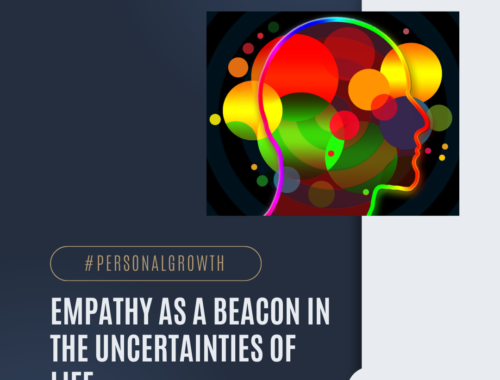
DECODING THE POISON BETWEEN THE LINES
There is a whisper hidden in job postings that echoes louder than any promise of growth. The words, aligned neatly in polished descriptions, carry the invisible weight of cultures eroding from within. Imagine this: you scroll through a posting, and between the demands for “multitasking” and praises of a “fast-paced environment,” a veiled confession emerges. It’s not just a list of responsibilities; it’s a map of what the organization truly cultivates—or, more precisely, what it allows to rot.
In that moment, every term becomes a secret code. Take “versatility,” for example—it can be poetry or prison. Unsure what I mean? On the surface, it sounds like autonomy, but between the lines, it signals roles that spread like roots without soil, requiring you to stretch in opposing directions without support to make the effort sustainable. “Constant challenges” may sound adventurous, but they can conceal cycles of instability that no one admits—silent rotations of tasks and priorities that drain energy before your first day even begins.
Have you seen this before? A posting asking for experience with five different systems, fluency in three languages, and availability for weekly travel—while promising “work-life balance.” Notice how, in such cases, that balance is often just a showcase ideal?
Then come the words that promise security: “flexible,” “adaptable,” “proactive.” But adaptable to what? Sudden changes? Leaders who don’t define clear directions? Or a culture that values speed over clarity? Have you noticed that each of these promises can actually be a hidden signal of wear and tear? Enthusiasm consumed, creativity suffocated, energy diverted to extinguishing invisible fires… have you ever experienced this?
Toxicity here isn’t loud; it’s almost poetic—a seduction that traps you with the shine of the words while masking the true weight of daily life. And yet, with sharpened attention, you can decode the subtext: the immediate impact they promise may be urgency disguised as opportunity; freedom offered might be abandonment; passion requested could be exhaustion masquerading as purpose.
Strategic questions to read between the lines:
• Which tasks truly demand my energy, and which are overload disguised as learning?
• When a posting mentions “accelerated growth,” does it mean guided development or directionless acceleration?
• Is there clarity on support, team structure, and leadership, or does the sparkle of the ad hide the absence of foundations?
Decoding these between-the-lines signals is the first step toward turning a job posting into a strategic practice of self-protection and discernment. It’s about looking beyond the nectar of words to see the poison that, silently, can drain your energy before you even accept the offer.
Grand Titles, Empty Roles
Now, consider those grandiose titles: “Digital Transformation Manager” or “Exponential Growth Specialist.” They ignite imagination, evoking visions of internal revolutions—but have you ever wondered if, behind the shine, the role is poorly defined, with a scope that stretches indefinitely? It’s as if the company is selling a dream while omitting the human cost.
Selective transparency is a well-rehearsed art: benefits like “collaborative culture” appear in bold letters, while hierarchies that stifle voices and metrics that value quantity over quality remain in the shadows. And so I ask: have you ever found yourself in situations where expectations were magical, but reality demanded silent contortions just to survive? What is left unsaid screams: candidates are evaluated meticulously while the organization hides behind generic veils.
The Language of Silent Pressure
Now, imagine decoding the emotional tone embedded in the words. A posting that repeats “high performance” like a mantra may signal pressure that tolerates no pause, where success is measured by endless outputs, not by thoughtful contributions. Have you ever felt the sensation of always running, unable to breathe, even when doing everything right?
Toxicity does not need to be blatant; it seeps into cultures that normalize excess, selling it as dedication. “Resilience required”—how often has that masked collective resignation in the face of unresolved problems? It’s the echo of teams that learned to survive, not to thrive, where “we” dissolves under the weight of unrealistic expectations.
I want to go further: every posting is an invitation to a relational dance, and what is offered reveals the value the company places on the human behind the résumé. When a description emphasizes “passion for what you do” but ignores how that passion will be nurtured, haven’t you felt that what is asked is dedication, not reciprocity? Passion is not a commodity; it’s fire that needs air, not suffocation.
Companies that speak of “family” often confuse loyalty with obedience, creating bonds that bind more than they nurture. Ask yourself: have you ever been in contexts where saying “yes” felt like obligation rather than choice?
And if the posting celebrates “diversity and inclusion” but ignores how it manifests in daily life, you’ve likely noticed it may be mere performativity. Values displayed as trophies, not integrated into the essence. An “innovative environment” may, in practice, be code for experiments without safety nets, where mistakes are punished rather than learned from.
In this context, applying is no longer just a practical action: it becomes an act of discernment. You are not seeking a job; you are choosing a mirror for your own evolution—or stagnation. Have you ever reflected on this with postings that seemed perfect on the surface?
The Power of Omission
Consider this: what is the real impact of what is left unsaid? Postings that avoid details about leadership, team structure, or evaluation criteria often conceal intentional opacity. Why? Because clarity exposes vulnerabilities that a toxic culture prefers to keep under veils.
“Competitive salary” without clear ranges—have you encountered this? It may indicate unequal negotiations, where power always favors the employer. And those generic “attractive benefits”? Often, they are just curtains for packages that do not compensate for the emotional cost of a vitality-draining environment.
It’s as if the language were a fragile bridge: beautiful and seductive from afar, but capable of collapsing under the weight of reality. Have you ever crossed that bridge at a company and felt the ground shake beneath your feet?
The Job as a Mirror of Culture
By decoding these between-the-lines cues, a strategic awareness emerges: choosing a job is, in fact, shaping the contours of your own professional existence. Environments demanding “total availability” do not respect boundaries—they invade spaces that should remain sacred.
Toxicity does not always shout; often, it is the silence that follows an implicit demand, the exhaustion that accumulates like invisible dust in silent corridors. Have you ever felt that weight without realizing its source?
Healthy companies speak with humility, recognizing that talent is reciprocal—they offer not only roles but contexts where growth is mutual. Others, with inflated rhetoric and grand titles, reveal an insatiable hunger that consumes without ever satisfying.
Conscious Application
By this stage, you have read the posting carefully, decoded promises and hidden signals, noticed the silent pressure and the power of omission. Now it’s time to bring that strategic eye into the selection process, because it is the doorway to the real culture.
Do not be fooled: every email, every call, every interview reflects the environment you are about to enter. Observe behavior, maturity, and respect from the people conducting the process. Companies that value humans demonstrate clarity, empathy, and consistency in every interaction. Those that do not, even unintentionally, reveal arrogance, haste, or disorganization.
Before any contact, do thorough research:
• Social networks and employee testimonials: how do they talk about climate, leadership, and challenges?
• History of selection processes: is there transparency or evasive responses?
• Signs of culture in daily life: does what is said publicly match practice?
The Selection Process as a Mirror of Consciousness
Applying for a job is more than seeking employment—it is seeking a mirror of identity. Every word spoken in an interview, every glance exchanged, every silence loaded with expectation reveals something deeper: how the relational system of that company engages with the human being.
It is in this subtle territory that the invisible is revealed—microexpressions, pauses, tone of voice, the coherence between speech and behavior.
Because every corporate culture is a collective emotional field. Healthy companies breathe with a human rhythm; unhealthy companies breathe urgency.
Observe:
• Does the interviewer genuinely listen, or are they just waiting for their turn to speak?
• Are the questions curious or standardized?
• Is there space for pause, reflection, and reciprocity—or does everything need to be fast, precise, performative?
These signals are micro-mirrors of culture.
• Haste reveals institutional anxiety.
• Arrogance reveals hidden fragility.
• Kindness reveals psychological safety.
And you? Can you perceive how you react emotionally in these moments? Your body knows before your mind does—the discomfort is an early warning from your professional soul. Neuro-scientifically, what we call “instinct” is the emotional brain detecting inconsistencies between what is said and what is lived.
For this reason, an interview is not a test of aptitude—it is a dialogue of internal vibrations, a silent dance between your consciousness and that of the organization.
The New Conscious Choice Checklist
1. Before the Interview: The Discernment Radar
• Observe the tone of the job posting: is there clarity or theatricality?
• Research who is behind it: leaders, purpose, track record.
• Analyze whether the institutional discourse speaks truthfully or markets emotion.
• Feel: does the posting inspire trust or subtly create tension?
2. During the Interview: The Relational Field
• Observe how time is handled—genuine listening or just a checklist of questions?
• Note the gaze: empathetic, distant, or evaluative?
• Perceive if there is congruence between what is said and what resonates in the environment.
• Ask strategic questions that reveal the emotional maturity of leadership:
o “How do you care for the team’s well-being under pressure?”
o “How is success recognized here: by the result or the process?”
o “Which practices strengthen belonging and collaboration?”
3. After the Interview: The Silent Feedback
• How is feedback delivered—transparent, respectful, human?
• Does the response time reveal organization or carelessness?
• Is there continuity in the dialogue or disappearance?
• Most importantly: how did you feel? Expanded or drained?
The body stores the answers the mind tries to rationalize. Your perception is the most precise compass for discerning the real culture.
The Wisdom of Alignment
Ultimately, the interview is a ritual of mutual recognition: two consciousnesses seeking a meeting point. A company that embraces your humanity does not need to convince you with slogans; it wins you over with presence, listening, and coherence.
And a mature mind understands that the right job is not the one that pays the most, but the one that resonates with your emotional and cognitive integrity. Unhealthy companies try to buy energy; healthy companies cultivate it.
• One offers a salary, the other offers meaning.
• One demands submission, the other awakens autonomy.
• One convinces with marketing, the other wins with experience.
Discernment, therefore, is the new success. Choosing consciously is not about survival—it is about flourishing with emotional dignity.
Remember:
“The job you choose defines far more than your income—it defines the emotional climate in which your mind will live every day. Perhaps the real question is not ‘how much will this company pay me?’ but ‘how much of myself will this company allow me to be?’”
#marcellodesouza #marcellodesouzaoficial #coachingevoce #consciousapplication #selectionprocess #emotionalintelligence #discernment #selfawareness #corporateculture #humanleadership #workwithpurpose #professionalflourishing #rightchoice #neuroscience #corporatepsychology

Quando o Tédio Começa a Falar

DECIFRANDO O VENENO NAS ENTRELINHAS
Você pode gostar

Empathy as a Beacon in the Uncertainties of Life
25 de janeiro de 2024
The Power of Relationships: Building Our Consciousness
10 de fevereiro de 2024